Poultry News
New slaughter regulations from Defra regarding the killing of poultry have raised concerns over the welfare of the birds with the British Veterinary Association (BVA).
The organisation is apprehensive of Defra’s decision not to include stunning parameters in the legislation when it involves poultry being slaughtered ‘in accordance with religious rites’. Despite these concerns, BVA, or the most part, has applauded the Welfare of Animals at the Time of Killing (WATOK) Regulations.
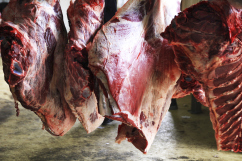
The European Food Safety Authority (EFSA) has worked hard to evaluate parameters for electrical waterbath stunning of poultry, which has led to European legislation including rules on stunning when it comes to animal welfare at slaughter.
There are fears that if rules are not clearly stated and implemented in electrical waterbath stunning for birds killed ‘in accordance with religious rites’, then the animals will be immobilised rather than stunned when it comes to slaughter. This would result in the animal still being conscious at the time of slaughter.
“In the last year we have seen headlines about the inhumane treatments of animals at slaughter and, while these new WATOK regulations are strong in many areas, we are concerned that the omission of specific parameters for electrical waterbath stunning leaves some poultry vulnerable to ineffective stunning,” explained BVA president Sean Wensley.
The BVA believes that European legislation should be practised throughout WATOK, with fears that taking away the requirements in electrical waterbath stunning may also remove the legal guarantee for effective stunning before slaughter.
In response to these issues, the BVA has voiced its concerns in a letter to Defra, seeking clarification as to how it will be ensured that the bird is stunned before the time of death.
“We have written to Defra outlining our concerns about this gap that undermines the science the regulations are built upon,” continued Wensley.
“It is difficult to see how effective stunning can be assured for all poultry if parameters are not set when poultry are killed in accordance with religious rites. Slaughtermen, official veterinarians and animal welfare officers in abattoirs are not able to tell the difference between birds that have been effectively stunned and those that are just electro-immobilised, thus compromising the animal welfare standards that these regulations are being put in place to protect.”
Tesco is to stop selling lamb products in mixed origin packs following a meeting with the National Farmers’ Union (NFU).

From February of next year, the retailer will only supply packs of lamb that clearly state which country the product is from. Tesco had previously come under fire from farmers over the number of product facings they dedicated to produce from non-British countries.
The meeting involved the NFU, NFU Scotland, NFU Cymru, and Ulster Farmers’ Union, as well as the retailer and its processor representative, with the aim of highlighting the role Tesco has to play in supporting the British lamb sector.
A joint statement from the four farming unions said: “The meeting involved robust, but useful discussions where all parties agreed that there was a real benefit in continuing conversations to develop greater transparency in the lamb supply chain.
“At this meeting Tesco has confirmed that at the end of February 2016, it will not be selling lamb products in mixed origin packs. The unions welcome this move as it will allow customers to make an informed decision in the origin of the product that they are buying.”
A spokesperson for Tesco said: “We have a long history in supporting UK agriculture and continue to have an open conversation with the NFU and processors on the crucial roles we all have in supporting the lamb industry. We updated them on our plans, which included the single source labelling of products like mince.”
Dalziel Ingredients has added two new graduates to its specialist product development team.
John Camus and Roya Rasouli have joined the company as graduate NPD technologists.

Camus graduated this year with a first-class honours degree in food science and nutrition from Northumbria University after a six-week placement with Dalziel Ingredients last year. –
Rasouli studied at Sheffield Hallam University, where she graduated with an honours degree in food marketing.
A third graduate NPD technologist is also joining later on in the month.
Dr Fiona Caple, Northumbria University’s director of programmes, department of applied sciences, said: “We have a great ongoing relationship with Dalziel. We know our graduates will be exposed to the highest professional standards.”
Dalziel’s product development team advises food manufacturers across the UK on flavour trends, market analysis, factory processes, recipe formulations and product quality enhancements (increasing yields, salt reductions, improved texture and fat reduction).
The company is currently seeing a high demand for advice and ideas for the gluten-free sector.
The National Pig Association (NPA) has praised supermarkets, including Lidl, for giving over more shelf space to British pork
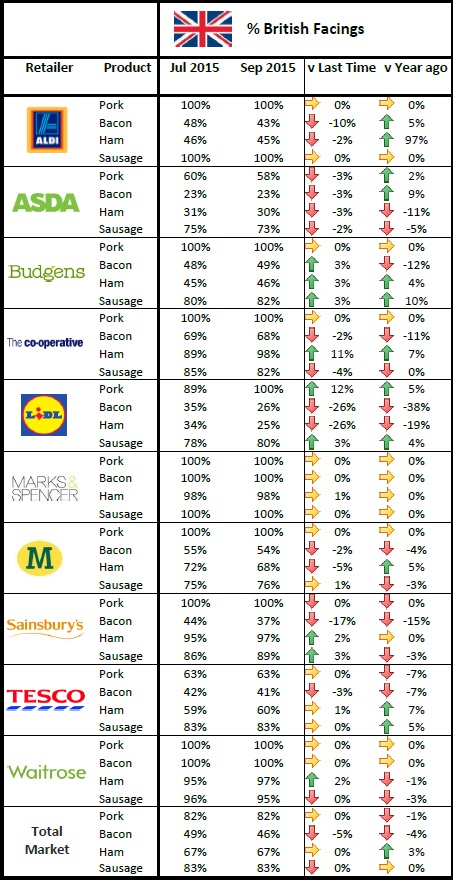
According to the latest Porkwatch survey from AHDB Pork for September, 100% of pork sold by Lidl was British.
The discounter joins the likes of: Aldi, Budgens, Co-op, M&S, Morrisons, Sainsbury’s and Waitrose in stocking 100% British pork. Asda and Tesco were reported to have 58% and 63% of facings that were British, respectively.
“We’re delighted with this news and hope Lidl will demonstrate over the months ahead that it isn’t a flash in the pan,” said NPA chairman Richard Lister.
Chief executive Dr Zoe Davies added that supermarkets needed to support the British pork industry and that it would continue to endorse those that do.
She said: “If retailers and foodservice want the convenience of a thriving British pig sector on their doorstep, producing reliable supplies of a quality-assured, traceable, high-welfare product, then it’s essential they make a special effort to source British pork, sausages, bacon and ham over the difficult months ahead.
“We’re carrying on with our Keep It Up campaign, which commends those retailers who have stood by their post-Horsegate pledges to source more British pork.”
According to the NPA, producers are no longer breaking even as a result of falling prices over the past year. The Standard Pig Price has dropped from 151p this time a year ago to 128p this week, while the break-even point is 139p.
China is now the biggest market for UK pork exports outside of Europe, according to AHDB Pork, with strong demand for offal likely to continue to grow.
According to Jean-Pierre Garnier, AHDB Pork’s export manager, the current Chinese market remains full of opportunities. “The conditions in China are favourable. Prices have been rising and there’s not a lot of pork available on the market at the moment. We cannot say forever, but for the foreseeable future we can see strong growth.
It is estimated that China consumes half the pork in the world, he added. However, there is still work to do to ensure that the value of exports keep pace with volumes. “It is important to us to improve the value of what we export to China in terms of added value and making more branded products, as well as better packaging, to make it better for the consumer,” said Garnier
At the moment, the UK exports 28% of the pork it produces. In the month of August, both imports and exports of the meat increased. At just over 30,000 tonnes, pork imports were 8% higher than they were in August last year.
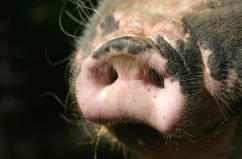
Spain has experienced a 50% rise in export volumes of pork to the UK, according to the levy board. Belgium and Denmark are also key suppliers of the meat, with both countries seeing a 14% rise.
Imports and exports remain a key area for progression, but pig slaughterings in the EU aren’t experiencing the same growth.
Although a rise in slaughterings is expected to continue until at least the middle of next year, they have slowed compared to the first half of 2015, according to AHDB Pork.
This conclusion is constructed around an analysis of figures presented by the European Commission’s pigmeat forecast working group. A report from the levy board highlighted that: “Pig slaughterings are forecast to rise by around 2% year on year in the second half of 2015, with growth slowing to around 1% in the first half of 2016.”
Furthermore, it said that many member states are predicting that pig levels will remain similar to year earlier levels. The strong growth by Spanish output is set to outweigh this stability, though this may also begin to relax by the second quarter of next year.
Bernard Matthews has appointed Andy Deutsch to the new role of chief operating officer
Deutsch, who joined the company on the 5th of October, has worked in the food industry for more than 30 years, across a wide range of roles and organisations.
He brings extensive experience in foodservice, chilled and frozen sectors to the poultry processor’s management team.

“We are delighted to have Andy joining us at what is a very exciting time for the company, as we launch our new brand identity, start our sponsorship of the Simpsons on Channel 4 and introduce British chicken products to our portfolio,” said Rob Burnett, CEO of Bernard Matthews.
“Andy’s experience and understanding of the food industry will play a key role in helping deliver our ambitious plans for the future.
Deutsch added: “Bernard Matthews is one of the UK’s most iconic food brands so it’s a real pleasure to be given the opportunity to be part of the development and growth of the business in this new phase in the company’s history.”
In his new role as chief operating officer Deutsch will be responsible for various different things,including: procurement, supply chain, planning and production.
Before joining the business he worked for Hain Daniels, where he held MD roles in Food to Go & Desserts and its Chilled & Frozen subsidiary.
Previous he also had senior roles at Vion, Northern Foods and Fisher Foods and has worked with a range of consumer brands and retail own-label products.
Bernard Matthews, the largest turkey producer in the UK, is headquartered near Norwich in Norfolk and employs approximately 2,000 people across East Anglia.
It is a totally integrated food business, allowing for full traceability across its 56 farms, which rear nearly seven million turkeys per annum.
Through its farming and production business the company supplies nearly half the homes in the UK with tasty, versatile and affordable turkey and chicken meal time solutions.
With the arrival of autumn, ingredients supplier Unbar Rothon has unveiled six imaginative sausage flavours, created to establish something unique for the market. Cinnamon-flavoured pork and toffee apple, and a warm and spicy pork and mango chutney are among the new flavours.
“We recognise that it is all too easy for an industry to become attached to the familiar and get stuck in the mud,” explained Richard Rothon, director of Unbar Rothon.

Also found among the sausage mixes are a sweet and spicy pork, leek, apple and chilli mix and a spicy apple and black pudding mix. Completing the range are two vegetarian-options, which consists of the flavourings; smoky garlic and thyme, and parsnip honey and thyme.
Rothon added: “We have worked very hard to produce new and interesting ideas, which will make a food offer more interesting – and profitable.”
As well as the new range of sausage flavourings, the business has unrolled a series of ingredients designed for the meatballs and stuffing market.
Leading the launch is a sweet orange and tart cranberry mix. Other flavours are; leek and black pepper, red pepper and shallot, and sage and onion with a hint of black pepper.
Unbar Rothon is not the only company that has noticed a trend for something different in the sausage market.
Snowbird Foods claims to be the leading cooked sausage and meatball supplier. Its products are fully cooked and frozen at factory stage, which allows them to be quickly reheated for the food-to-go and buffet sectors.
The standard Cumberland, Lincolnshire and pork sausages are claimed to be a prepared-to-order breakfast solution that can be microwaved from frozen.
The company has also developed a new Mini Meat Bites range, consisting of cocktail and other small sausages with pork, lamb, beef, chicken and turkey varieties.
“These award-winning bites have attracted a lot of interest and their versatility has enabled us to develop a new market segment in the ingredients area,” said Snowbird’s commercial and marketing director Roy Anderson.
As well as the mini sausages for the buffet market, Snowbird Foods has developed a pork and spiced chorizo sausage that it claims will heat in seconds in the microwave.
The sausage contains an 80% pork content and is presented in a beef collagen casing. They are made using diced chorizo and flavoured with smoked paprika, salt, black pepper, ginger, parsley and garlic.
Anderson explained: “Our chorizo is an ideal solution for those restaurants looking for a sausage that is so different their outlet will stand out from the crowd and attract repeat business.”
Lamb farmers and producers are being urged to ensure their sheep are vaccinated as autumn arrives.
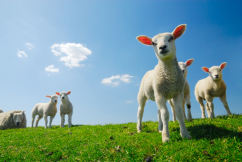
The appeal comes after the results of AHDB Beef & Lamb’s Fallen Stock initiative revealed that certain illnesses in lambs were more prominent during the autumn months.
Research from the project, which ran from April 2014 to June 2015, showed that pulpy kidney, a common clostridia disease, was at its highest levels during October 2014 for lambs receiving hard feed.
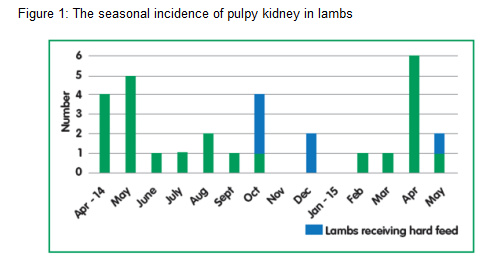
It is believed this can be attributed to a change in their natural diet as the seasons change. Where lambs had been receiving hard feed, most had not received a booster prior to the change in diet.
Furthermore, immunity that they might have obtained from drinking colostrum at birth might have worn off by this time, implying that a vaccination booster could aid them.
“If producers are keeping store lambs during this period, they should be vaccinated ahead of any anticipated adverse weather or other stressors such as moving,” claimed Dr Liz Genever, senior sheep and beef scientist.
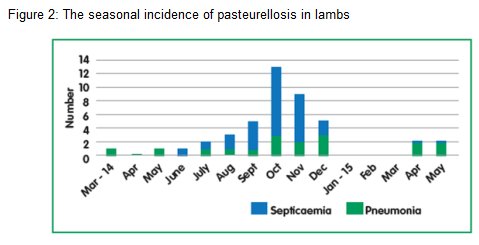 “Lambs that are vaccinated when they are young, from one-month-old, may lose their immunity by the autumn if not given a booster around September.”
“Lambs that are vaccinated when they are young, from one-month-old, may lose their immunity by the autumn if not given a booster around September.”
In addition, the research also proved that cases of pasteurella deaths reached new heights in lambs during October.
“There is a clear need for this, as lambs had been vaccinated according to the data sheet in only 12% of the outbreaks monitored,” added Genever.
“These diseases can be prevented by the administration of appropriate vaccines and should be done as soon as possible.”
Leaders in the butchery industry have warned against using apprenticeships as a replacement for offering staff a competitive wage.
A Meat Trades Journal online survey found that around 70% would consider taking on more apprentices in response to rising minimum wages. Announced in the Budget earlier this year, the National Living Wage will increase to £7.20 as of 1 April 2016. This will increase further in 2020 to £9, for those aged 25 and over. This comes as government approval to launch a brand new ‘Trailblazer’ apprenticeship scheme for butchery was given earlier this month.
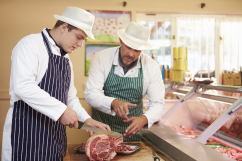
Advocate for Apprenticeships, Lucianne Allen of Aubrey Allen said it was vital to pay a fair wage to those in the industry and that apprentices should be seen as an opportunity to teach a craft rather than cut costs. Aubrey Allen currently has seven apprenticeships in its business and is looking to take on more in the near future.
“Butchery is a fantastic craft but a hardworking one and there’s no point in having apprentices if they don’t feel that they have a future in an industry that will invest in them long-term. We have to make ourselves competitive as employers and that includes offering a competitive wage.”
She said that apprenticeships should still be considered by those looking to attract new people to the industry. “Apprenticeships are a fantastic opportunity to be paid while you train, when previously a person would have had to pay to learn, but they are certainly not a substitute for experienced staff.”
Noel Collett, chief executive officer of the Crawshaw Group agreed businesses should not use apprentices as a cheap option. The group is currently on a recruitment drive and hopes to create 2,500 jobs over the next five years. “The National Living Wage will clearly put many businesses under financial pressure. However, when looking to recruit quality staff with a specific skill set, businesses like ours will need to plan accordingly and pay the correct level,” he said.
“On the topic of apprenticeships, we view the scheme as a great mechanism for introducing new people into the butchery industry to develop a new career, irrespective of their qualification or experience, and would not use the scheme as a cost-cutting exercise. They are two very different challenges and businesses should invest in the people resource by paying them a fair wage.”